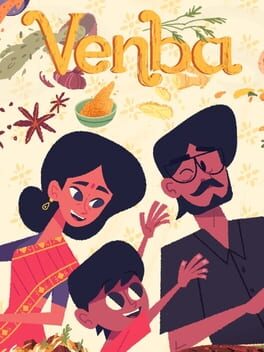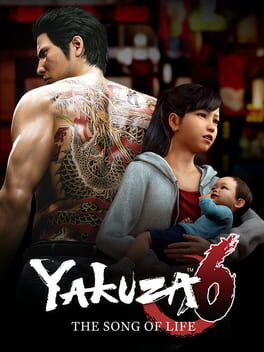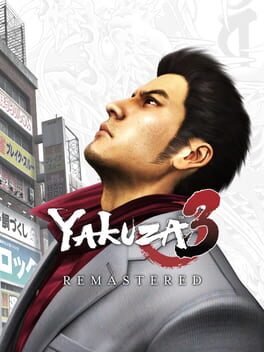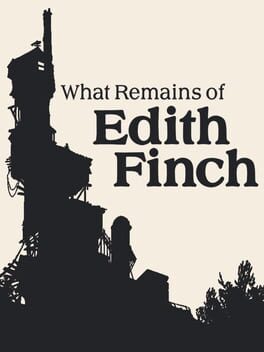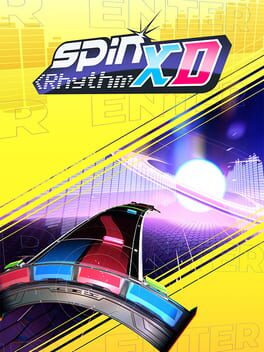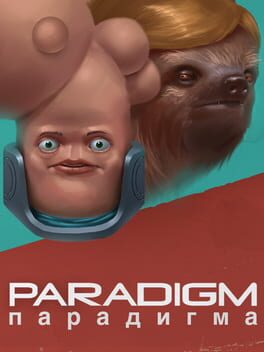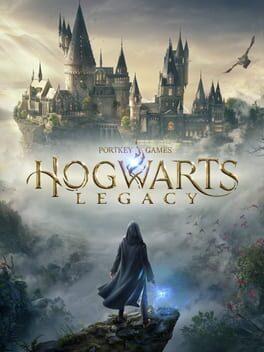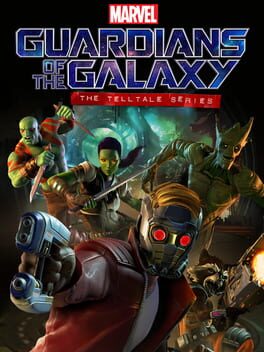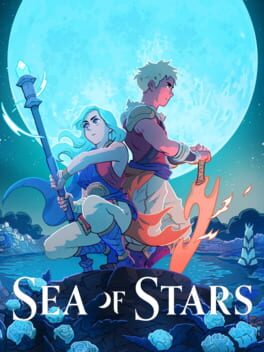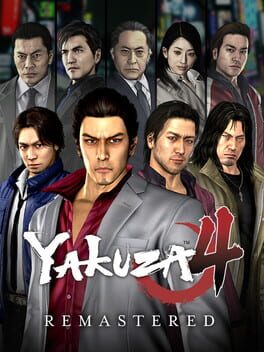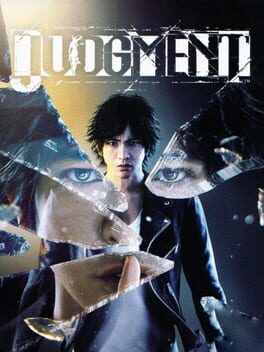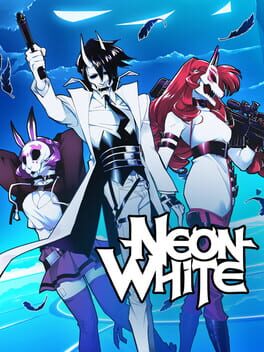Qreedence
2023
To set expectations accordingly, go into this expecting an interactive Pixar movie, in both time spent and how similarly they can tug at your heartstrings depending on how you relate to the source material.
I didn't know too much about this game before playing it, just that it had gotten some critical acclaim but also some negative feedback regarding its length. I didn't mind the length at all. On the contrary, I felt like it wrapped up just when it should have.
The story is about an immigrant couple from India trying to make a new life for themselves in Canada, with all of what that entails. As a third culture kid, a lot of the themes resonated pretty heavily with me even if the specifics were sometimes different. But the core of the story, trying to fit in at the expense of shunning your close ones, is something I think a lot of people can relate to even without sharing a similar background.
I haven't touched on the gameplay at all; that's because it's of secondary importance to the story being told, and frankly there's not a whole lot to talk about in regards to it. Most of the gameplay segments revolve around cooking, where you have to follow the titular Venba's mother's somewhat-damaged recipe book to make some insanely delicious looking Tamil dishes. It's not hard, and if you fail you just try again immediately. The cooking exists as a bonding device between loved ones, and it definitely manages to pack an emotional punch. I'm trying not to go into specifics as I definitely believe the story is something everyone should get to experience for themselves.
All in all, a wonderful little package.
I didn't know too much about this game before playing it, just that it had gotten some critical acclaim but also some negative feedback regarding its length. I didn't mind the length at all. On the contrary, I felt like it wrapped up just when it should have.
The story is about an immigrant couple from India trying to make a new life for themselves in Canada, with all of what that entails. As a third culture kid, a lot of the themes resonated pretty heavily with me even if the specifics were sometimes different. But the core of the story, trying to fit in at the expense of shunning your close ones, is something I think a lot of people can relate to even without sharing a similar background.
I haven't touched on the gameplay at all; that's because it's of secondary importance to the story being told, and frankly there's not a whole lot to talk about in regards to it. Most of the gameplay segments revolve around cooking, where you have to follow the titular Venba's mother's somewhat-damaged recipe book to make some insanely delicious looking Tamil dishes. It's not hard, and if you fail you just try again immediately. The cooking exists as a bonding device between loved ones, and it definitely manages to pack an emotional punch. I'm trying not to go into specifics as I definitely believe the story is something everyone should get to experience for themselves.
All in all, a wonderful little package.
Having recently played the remasted trilogy of Yakuza 3, 4 and 5, the first thing that jumped out at me was just how gorgeous this game is. The visual fidelity has taken a huge leap forward, and this being the first game in the dragon engine (although I did play Kiwami 2 not too long ago), there are a multitude of changes large and small from the previous entries in the series. A lot of them good, some of them I could live without, but what this entry did most of all was cement my newly found position as a Ryu Ga Gotoku Studio fan.
Maybe my newfound love for this franchise is a little ironic, seeing as how Yakuza 6 is supposed to be the end of the Kiryu saga. An unexpected positive side effect of me playing through the series in 2023 is that I'm playing with the knowledge that this is indeed not the end of Kiryu Kazuma, with him getting a new game that's releasing later this year. I think that's why I was able to be onboard with the story as much as I was.
To be clear, I did enjoy the story that was being told, but if I had played this with the mindset of this being possibly the last time we're seeing Kiryu, I would definitely have been disappointed. The characters that we've come to know and love over these past 7 games (counting 0) are mostly brushed aside, and instead we spend almost the whole game interacting with a new set of characters. I wanted more of Majima, Saejima, Daigo, Haruka, all the kids at the orphanage! Yuya makes a brief appearance, but Kazuki is nowhere to be found.
This game ending the way it did, I understand why a lot of people were upset at the time. I'm hoping more to come back to all these relationships that never got proper closure in future games.
I mentioned that this game changed a lot from the previous games - combat being one of them, but one that I'm not going to touch on too much in this review as I don't really care that much about it - combat is a means to an end, the reason why I've fallen for these games is for the worldbuilding, the characters and the story. I was positively surprised that all the substories are now properly voice acted and animated, but the joy was shortlived. There aren't that many substories to be found, and the main story itself was pretty short as well. But with the new engine, I'm guessing a lot of dev time went into getting to know the tools. Maybe they didn't have as much time to just churn out content.
Overall, Yakuza 6 is a hell of a way to close out this first decade long chapter of Yakuza games, and I'm excited to play through the rest of the series.
Maybe my newfound love for this franchise is a little ironic, seeing as how Yakuza 6 is supposed to be the end of the Kiryu saga. An unexpected positive side effect of me playing through the series in 2023 is that I'm playing with the knowledge that this is indeed not the end of Kiryu Kazuma, with him getting a new game that's releasing later this year. I think that's why I was able to be onboard with the story as much as I was.
To be clear, I did enjoy the story that was being told, but if I had played this with the mindset of this being possibly the last time we're seeing Kiryu, I would definitely have been disappointed. The characters that we've come to know and love over these past 7 games (counting 0) are mostly brushed aside, and instead we spend almost the whole game interacting with a new set of characters. I wanted more of Majima, Saejima, Daigo, Haruka, all the kids at the orphanage! Yuya makes a brief appearance, but Kazuki is nowhere to be found.
This game ending the way it did, I understand why a lot of people were upset at the time. I'm hoping more to come back to all these relationships that never got proper closure in future games.
I mentioned that this game changed a lot from the previous games - combat being one of them, but one that I'm not going to touch on too much in this review as I don't really care that much about it - combat is a means to an end, the reason why I've fallen for these games is for the worldbuilding, the characters and the story. I was positively surprised that all the substories are now properly voice acted and animated, but the joy was shortlived. There aren't that many substories to be found, and the main story itself was pretty short as well. But with the new engine, I'm guessing a lot of dev time went into getting to know the tools. Maybe they didn't have as much time to just churn out content.
Overall, Yakuza 6 is a hell of a way to close out this first decade long chapter of Yakuza games, and I'm excited to play through the rest of the series.
2018
My journey through the Yakuza games continues with the remastered version of Yakuza 3. Unlike 0, Kiwami and Kiwami 2, this is the first game where I felt like the series is really starting to show its age.
I went in with the mindset of trying most of the side content, but quickly laid that idea to rest. The mini-games suffer from poor controls, the side quests were sometimes fun, but navigating the archaic menus got old real fast.
So I opted for mainlining the story, which turned out to be the correct choice at least for me. I don't doubt that all of this stuff was great when it was first released, but playing this game nearly 15 years after its release (the remaster updated the visuals, which was nice, but the systems and the content seem to be the same as before), I didn't really feel like it has held up all that well.
The story on the other hand is another matter entirely. While I was optimistically enthusiastic about the setting, the characters and the plot before going into Yakuza 3, at this point after seeing the story to its conclusion I'm all the way in.
I went in with the mindset of trying most of the side content, but quickly laid that idea to rest. The mini-games suffer from poor controls, the side quests were sometimes fun, but navigating the archaic menus got old real fast.
So I opted for mainlining the story, which turned out to be the correct choice at least for me. I don't doubt that all of this stuff was great when it was first released, but playing this game nearly 15 years after its release (the remaster updated the visuals, which was nice, but the systems and the content seem to be the same as before), I didn't really feel like it has held up all that well.
The story on the other hand is another matter entirely. While I was optimistically enthusiastic about the setting, the characters and the plot before going into Yakuza 3, at this point after seeing the story to its conclusion I'm all the way in.
2023
The phrase "I'm gonna take my ball and go home!" went through my head on more than one occassion while playing this game.
It's funny, the plot beats and the overall narrative are very vague, so in my head I gave voices to all the various life forms and probably turned the whole thing into a way more comedic experience than was probably intended. Though the narrative vagueness might have been expected, given that Jeppe Carlsen (who was the lead for this) worked on both Limbo and Inside.
It's a good thing that I managed to click way more with the gameplay aspects of Cocoon than I did with either of the previously mentioned games. There is something to be said for puzzle design which feels so elegantly and meticulously crafted - there were plenty of opportunities where the game could have gotten extremely messy with dangling puzzle threads left unfinished that you come back to later, which in other games might cause you to meander about searching for the solution. That doesn't happen in Cocoon, where the play area is smartly limited so you can focus on one thing at a time.
The puzzles start pretty small in scope, but gradually increase to encompass larger areas. But even so, I never felt like I was at a loss for what to do for very long. Every time I got stuck, I would quickly go over the puzzle's play area and make a mental note of every potential puzzle piece, and sometimes I had to stare at a thing for a minute or two until a solution came to me in a eureka-moment.
I don't want to give away too much when it comes to mechanics, but suffice to say that the game successfully managed to blow my mind, especially towards the end. There were some (to me, at least) pretty complicated concepts to wrap my mind around, and damn if I didn't feel like a genius every time I solved one of those puzzles.
It's funny, the plot beats and the overall narrative are very vague, so in my head I gave voices to all the various life forms and probably turned the whole thing into a way more comedic experience than was probably intended. Though the narrative vagueness might have been expected, given that Jeppe Carlsen (who was the lead for this) worked on both Limbo and Inside.
It's a good thing that I managed to click way more with the gameplay aspects of Cocoon than I did with either of the previously mentioned games. There is something to be said for puzzle design which feels so elegantly and meticulously crafted - there were plenty of opportunities where the game could have gotten extremely messy with dangling puzzle threads left unfinished that you come back to later, which in other games might cause you to meander about searching for the solution. That doesn't happen in Cocoon, where the play area is smartly limited so you can focus on one thing at a time.
The puzzles start pretty small in scope, but gradually increase to encompass larger areas. But even so, I never felt like I was at a loss for what to do for very long. Every time I got stuck, I would quickly go over the puzzle's play area and make a mental note of every potential puzzle piece, and sometimes I had to stare at a thing for a minute or two until a solution came to me in a eureka-moment.
I don't want to give away too much when it comes to mechanics, but suffice to say that the game successfully managed to blow my mind, especially towards the end. There were some (to me, at least) pretty complicated concepts to wrap my mind around, and damn if I didn't feel like a genius every time I solved one of those puzzles.
I never expected to enjoy a game in this genre to this extent. When it was next up on the docket while plowing through my backlog, I figured I'd give it half an hour or so and probably put it back down and move on to the next item on the backlog.
I'm very happy to have been so wrong though. In the walking simulator space, which I guess this would fall into, the story is almost the whole reason for playing. What I found so interesting though is that normally, you're kind of an archeologist walking through a space where things have happened - you're just there to piece together the story.
Edith Finch ostensibly follows that same structure, but throws its own unique twists in there. The game starts off with literally getting to an abandoned house and slowly piecing together what happened, but the way in which you experience those stories, kind of like little vignettes, is that you're transported back in time and experience the stories from the point of view of whoever that particular story is about.
I don't want to get too dep into the specifics of the story, as piecing together what was happening is kind of the only reason to play a game like this, but I was definitely invested from very early on. My one quibble with the story might be that the ending may have been a little rushed for my tastes, the dust not getting enough time to settle.
I'm very happy to have been so wrong though. In the walking simulator space, which I guess this would fall into, the story is almost the whole reason for playing. What I found so interesting though is that normally, you're kind of an archeologist walking through a space where things have happened - you're just there to piece together the story.
Edith Finch ostensibly follows that same structure, but throws its own unique twists in there. The game starts off with literally getting to an abandoned house and slowly piecing together what happened, but the way in which you experience those stories, kind of like little vignettes, is that you're transported back in time and experience the stories from the point of view of whoever that particular story is about.
I don't want to get too dep into the specifics of the story, as piecing together what was happening is kind of the only reason to play a game like this, but I was definitely invested from very early on. My one quibble with the story might be that the ending may have been a little rushed for my tastes, the dust not getting enough time to settle.
2019
Guitar Hero was my first rhythm game craze, I got so hooked on it that I wound up buying a real guitar and learning how to play, eventually even going to university to study music and working as a gigging musician and a music teacher. All this to say that I REALLY got into Guitar Hero. I've always looked out for more rhythm games to capture me the same way it did back in the day, but I haven't found one that does that. Until Spin Rhythm XD.
Instead of guitar-centric rock and metal tracks, this game features a ton of EDM, wubs and warbles and all of that. Not to mention the insane amount of custom tracks available - it seems like the game is garnering a pretty small albeit very passionate community.
Playing songs in this game feels very satisfying in a way that's very hard to describe, and even hard to convey in videos. This game might just become a mainstay in my rotation for the foreseeable future.
Instead of guitar-centric rock and metal tracks, this game features a ton of EDM, wubs and warbles and all of that. Not to mention the insane amount of custom tracks available - it seems like the game is garnering a pretty small albeit very passionate community.
Playing songs in this game feels very satisfying in a way that's very hard to describe, and even hard to convey in videos. This game might just become a mainstay in my rotation for the foreseeable future.
2022
There's so much to talk about with Elden Ring. There's the giant open world, which is at times breathtaking and awe-inducing but also at times rote and formulaic (you know you're going to find a tunnel with miners, catacombs with some undead enemies, caves with various wildlife, etc), but by the time the magic is starting to wear off, the game kicks into high gear and barrels through to the endgame.
It works incredibly well - the lore revelations and boss encounters, and "legacy dungeons" (what I understand to mean a Dark Souls-ass level, basically) happen with increased frequency toward the end, and it feels like the big payoff after spending over a 100 hours roaming the open world, adventuring and piecing together the lore of the Lands Between in an almost archeological manner, as you do in these FromSoft games - reading item descriptions, listening to cryptic NPC dialogue and trying to keep track of what different quests you're on at the moment, since the game doesn't track anything for you.
I kept notes on what characters wanted me to do for them, or any hints they provided as to where they might be headed, and it always felt rewarding seeking them out and finding them. On the flipside, it felt really bad when I accidentally progressed something too far, making other questlines completely inaccessible.
I've heard it mentioned elsewhere that this game, length-wise, is almost like a whole Dark Souls-trilogy in 1 game, and I'm inclined to agree. The Dark Souls-games usually take me between 30-50 hours to complete, and the timer was at 122 hours by the time the final credits rolled, and it is quite telling how captivated I am by this world when the thing I've been doing in the days after completing is diving deep into the lore and trying to learn more about everything I didn't pick up on, or things I simply didn't find.
I've said a lot of words about this game, but the long and short of it is that this is a game I'm going to remember for a long time.
It works incredibly well - the lore revelations and boss encounters, and "legacy dungeons" (what I understand to mean a Dark Souls-ass level, basically) happen with increased frequency toward the end, and it feels like the big payoff after spending over a 100 hours roaming the open world, adventuring and piecing together the lore of the Lands Between in an almost archeological manner, as you do in these FromSoft games - reading item descriptions, listening to cryptic NPC dialogue and trying to keep track of what different quests you're on at the moment, since the game doesn't track anything for you.
I kept notes on what characters wanted me to do for them, or any hints they provided as to where they might be headed, and it always felt rewarding seeking them out and finding them. On the flipside, it felt really bad when I accidentally progressed something too far, making other questlines completely inaccessible.
I've heard it mentioned elsewhere that this game, length-wise, is almost like a whole Dark Souls-trilogy in 1 game, and I'm inclined to agree. The Dark Souls-games usually take me between 30-50 hours to complete, and the timer was at 122 hours by the time the final credits rolled, and it is quite telling how captivated I am by this world when the thing I've been doing in the days after completing is diving deep into the lore and trying to learn more about everything I didn't pick up on, or things I simply didn't find.
I've said a lot of words about this game, but the long and short of it is that this is a game I'm going to remember for a long time.
2017
It's clear that this game was made with a lot of passion and heart with most work being done by solo developer Jacob Janerka. That said, your enjoyment of this game will largely hinge on how much you gel with the particular brand of absurdist humor on display here.
There was an early scene that actually had me laughing out loud for two solid minutes and gave me hope that there would be more where that came from. Unfortunately, the game never quite reached the same heights for me.
Paradigm hews close to its point & click adventure genre conventions, while managing to streamline the experience somewhat. The puzzles were never weirdly obtuse and solutions have a logic to them that is satisfying enough to solve, and if you should happen to get stuck there's a really good hint system which keeps things appropriately vague while giving you just enough of a hint to not have to look something up.
I also adore the art style of the game, and seeing the next weird thing rendered in this style was a good enough propellant to keep going forward. As I stated at the top of the review though, your enjoyment of the game as a whole will depend on how the jokes land for you personally, and I'm sad to say that after that first hour nothing ever really hit for me in the same way.
There was an early scene that actually had me laughing out loud for two solid minutes and gave me hope that there would be more where that came from. Unfortunately, the game never quite reached the same heights for me.
Paradigm hews close to its point & click adventure genre conventions, while managing to streamline the experience somewhat. The puzzles were never weirdly obtuse and solutions have a logic to them that is satisfying enough to solve, and if you should happen to get stuck there's a really good hint system which keeps things appropriately vague while giving you just enough of a hint to not have to look something up.
I also adore the art style of the game, and seeing the next weird thing rendered in this style was a good enough propellant to keep going forward. As I stated at the top of the review though, your enjoyment of the game as a whole will depend on how the jokes land for you personally, and I'm sad to say that after that first hour nothing ever really hit for me in the same way.
2023
While sitting here and writing this review, I'm having a hard time articulating why I enjoyed playing through this game eventhough most of its components fell short for me.
The combat is serviceable, if somewhat messy at times due to the amount of spells you unlock and the few buttons you have available to map them on to and opponents frequently ambush you from off-camera.
The open world activities sprinkled in through the map, of which there are entirely too many, are mostly uninteresting. Overall, I think my main gripe against this game is that there is too much fluff. The main story is enjoyable enough, as are the relationship quests you take on to get to know your fellow students better. But there is so much meaningless filler that I decided pretty early on to ignore most of it, and the experience got a whole lot better after that.
Although it seems like my opinions on this game are pretty sour, I did enjoy the parts that were good about it. It just felt like it had a little too much filler tacked on.
The combat is serviceable, if somewhat messy at times due to the amount of spells you unlock and the few buttons you have available to map them on to and opponents frequently ambush you from off-camera.
The open world activities sprinkled in through the map, of which there are entirely too many, are mostly uninteresting. Overall, I think my main gripe against this game is that there is too much fluff. The main story is enjoyable enough, as are the relationship quests you take on to get to know your fellow students better. But there is so much meaningless filler that I decided pretty early on to ignore most of it, and the experience got a whole lot better after that.
Although it seems like my opinions on this game are pretty sour, I did enjoy the parts that were good about it. It just felt like it had a little too much filler tacked on.
For me, the Telltale formula has worn out its welcome a bit and I won't lie - some parts of this game were a bit of a slog to get through. But playing this made me realize that the thing that Telltale games do best - cutscenes and dialogue choices - is what the games should focus on.
The parts of the game where you're walking around and solving very rudimentary puzzles in a perfunctory manner feel like they were there to satisfy some sort of quota of "gameplay", where in reality I don't think anybody actually goes to Telltale games for that stuff.
Having to make actual hard decisions, and having the story and writing be good enough to actually make those decisions hard, is the heart of the game and in those regards I was very on board. I just wish there was less of the things that didn't work well. Admittedly, it feels like the amount of walking around and puzzle solving is very low in this game, but there could've been less.
The parts of the game where you're walking around and solving very rudimentary puzzles in a perfunctory manner feel like they were there to satisfy some sort of quota of "gameplay", where in reality I don't think anybody actually goes to Telltale games for that stuff.
Having to make actual hard decisions, and having the story and writing be good enough to actually make those decisions hard, is the heart of the game and in those regards I was very on board. I just wish there was less of the things that didn't work well. Admittedly, it feels like the amount of walking around and puzzle solving is very low in this game, but there could've been less.
2023
This game has become quite divisive in the Final Fantasy community, with many regarding it as something that doesn't belong in the same series as its predecessors. The gameplay has taken a completely new direction, being a single character-driven, action-focused Devil May Cry-style game.
While that may be offputting to some, I myself have never been all that invested in the Final Fantasy franchise - never having completed a single entry. I've played through most of FFX, most of FFXIII and tried to play FFVII multiple times but was never able to see it through to its conclusion.
I think when seen through this lens, it becomes easy to see why this game has tended to be seen for what it isn't, rather than what it actually is. So I will try to provide that perspective and judge the game on its own merits, rather than what I was hoping it to be.
The demo that was released a few weeks prior to release was packed full of Game of Thrones-isms and a lot of moving pieces, but it actually managed to make me interested and even invested into this world of Valisthea and all its history. And as the game itself progressed, I was fully on board. While this game has received lots of complaints, I feel like the story isn't one of them.
The sheer scale of protagonist Clive's adventures keeps expanding, in an Asura's Wrath-like fashion, and you keep finding yourself fighting battles in ever increasing proportions of ridiculousness.
The combat itself falls into the category of simple to play, hard to master. I was of the opinion that it wasn't particularly that deep, and that is especially true of the Eikon battles, where you essentially turn into a kaiju to fight this game's version of the iconic Final Fantasy summons. But I've seen plenty of videos of people pulling off ridiculous never-ending combos that I myself could never hope to pull off, so I have to concede that there is a lot to play with if you put enough time and effort into it. While that was cool, the combat was never why I was playing this game to begin with, so I never mastered it in that manner.
With all that said, the main story and the combat are great and pretty good respectively, that just leaves talking about the ancillary systems and content of the game.
There is gear and crafting, though both of those systems are pretty shallow. You won't be picking up tons of different gear and comparing stats, you will mostly be crafting a new sword and some new armor after every major story beat to keep your strength on pace with the rest of the world.
There are sidequests, and I would be remiss to not mention how much I appreciated them. Sure, the actual gameplay element of the sidequests is usually completing some menial task (fetch this wooden plank, go find some flower in another zone, go clear this camp of enemies, etc), but the reward for doing them is not what you receive upon completing it, but the character dialog providing world building and context to so many small things in the world of Valisthea. I actually set a timer when doing one of the sidequests in the endgame. The ratio of gameplay to cutscene was something like 5 minutes of gameplay, 20 minutes of cutscenes. That was worthwhile to me at least, though I can certainly see why someone would hold a differing perspective.
The hunts on the other hand are what I believe to be the weakest side content in the game. There's a board in your hub area that displays monsters and gives a vague description of their location, and you go find them and kill them for some gil and renown. The rewards are barely worth it and the fights themselves are not that impressive, but I still did them all to satisfy my completionist mindset.
All in all, I spent nearly 70 hours completing the game where I did every single side quest, crafted the beast gear, did all the hunts, and finished the story. While the parts of the game that are technically gameplay fell a little short of being amazing for me, the story more than made up for it and I was definitely invested all the way through.
While that may be offputting to some, I myself have never been all that invested in the Final Fantasy franchise - never having completed a single entry. I've played through most of FFX, most of FFXIII and tried to play FFVII multiple times but was never able to see it through to its conclusion.
I think when seen through this lens, it becomes easy to see why this game has tended to be seen for what it isn't, rather than what it actually is. So I will try to provide that perspective and judge the game on its own merits, rather than what I was hoping it to be.
The demo that was released a few weeks prior to release was packed full of Game of Thrones-isms and a lot of moving pieces, but it actually managed to make me interested and even invested into this world of Valisthea and all its history. And as the game itself progressed, I was fully on board. While this game has received lots of complaints, I feel like the story isn't one of them.
The sheer scale of protagonist Clive's adventures keeps expanding, in an Asura's Wrath-like fashion, and you keep finding yourself fighting battles in ever increasing proportions of ridiculousness.
The combat itself falls into the category of simple to play, hard to master. I was of the opinion that it wasn't particularly that deep, and that is especially true of the Eikon battles, where you essentially turn into a kaiju to fight this game's version of the iconic Final Fantasy summons. But I've seen plenty of videos of people pulling off ridiculous never-ending combos that I myself could never hope to pull off, so I have to concede that there is a lot to play with if you put enough time and effort into it. While that was cool, the combat was never why I was playing this game to begin with, so I never mastered it in that manner.
With all that said, the main story and the combat are great and pretty good respectively, that just leaves talking about the ancillary systems and content of the game.
There is gear and crafting, though both of those systems are pretty shallow. You won't be picking up tons of different gear and comparing stats, you will mostly be crafting a new sword and some new armor after every major story beat to keep your strength on pace with the rest of the world.
There are sidequests, and I would be remiss to not mention how much I appreciated them. Sure, the actual gameplay element of the sidequests is usually completing some menial task (fetch this wooden plank, go find some flower in another zone, go clear this camp of enemies, etc), but the reward for doing them is not what you receive upon completing it, but the character dialog providing world building and context to so many small things in the world of Valisthea. I actually set a timer when doing one of the sidequests in the endgame. The ratio of gameplay to cutscene was something like 5 minutes of gameplay, 20 minutes of cutscenes. That was worthwhile to me at least, though I can certainly see why someone would hold a differing perspective.
The hunts on the other hand are what I believe to be the weakest side content in the game. There's a board in your hub area that displays monsters and gives a vague description of their location, and you go find them and kill them for some gil and renown. The rewards are barely worth it and the fights themselves are not that impressive, but I still did them all to satisfy my completionist mindset.
All in all, I spent nearly 70 hours completing the game where I did every single side quest, crafted the beast gear, did all the hunts, and finished the story. While the parts of the game that are technically gameplay fell a little short of being amazing for me, the story more than made up for it and I was definitely invested all the way through.
2023
I will admit right off the bat - I'm not particularly excited about turn-based RPGs. I decided to check this game out anyway due to the positive word-of-mouth and was left mostly "whelmed".
I really like the art, the music and more than a few of the characters are quite charming, but the sluggishness of the pace in the second act almost made me quit playing altogether.
The combat started out as a novel stand-out feature, with a little rhythm-based element to timing "perfect" attacks and parries which was a welcome little addition to the turn-based formula. Interrupting spellcasting by matching specific attack types was also something that remained satisfying all the way to the end.
I thought the premise of the story at the outset was pretty compelling, and was feeling myself get invested. Then the aforementioned second act happened and it kind of felt like the story was going nowhere. The third act picks it all up again, with added stakes and urgency and above all just a bunch of cool stuff. It's a shame that all the coolest stuff in the game is packed in the latter third.
I won't go into too much detail about the ending, other than to say that it didn't really do it for me. After the credits roll, you can mop up all the side stuff and get a "true" ending, but I was mentally checked out before even the regular credits rolled.
I really like the art, the music and more than a few of the characters are quite charming, but the sluggishness of the pace in the second act almost made me quit playing altogether.
The combat started out as a novel stand-out feature, with a little rhythm-based element to timing "perfect" attacks and parries which was a welcome little addition to the turn-based formula. Interrupting spellcasting by matching specific attack types was also something that remained satisfying all the way to the end.
I thought the premise of the story at the outset was pretty compelling, and was feeling myself get invested. Then the aforementioned second act happened and it kind of felt like the story was going nowhere. The third act picks it all up again, with added stakes and urgency and above all just a bunch of cool stuff. It's a shame that all the coolest stuff in the game is packed in the latter third.
I won't go into too much detail about the ending, other than to say that it didn't really do it for me. After the credits roll, you can mop up all the side stuff and get a "true" ending, but I was mentally checked out before even the regular credits rolled.
2019
Rather than a complete overhaul, this entry in the series takes the approach of iterative and incremental changes to its predecessor. By and large, in its gameplay systems and visuals, Yakuza 4 feels like a spruced up take on 3 if you disregard the main innovation - the four protagonists.
And that was enough to make Yakuza 4 feel like it stands solidly on its own. Starting out the adventure as Akiyama was a breath of fresh air. He has a personality that is instantly compelling, and seeing Kamurocho from his perspective, and the world he travels in be that different from what we've seen so far, set the bar for the potential pretty high.
I went so far as completing every side mission available at the time before moving on to Saejima's part of the story, and I did the same there, completing all available side missions before hopping on over to Tanimura.
At that point though, the narrative hooks of the main story had gotten me too good to be able to continue with that same slow pace, and at that point I pretty much raced to the finish line to see the story through. While it felt like a slow burn initially (much like Yakuza 3 did with its opening hours focused on Kiryu's life in Okinawa and the orphanage), by the time we finally take control of Kiryu I felt like the game really hit its stride and really gave the conclusion enough time to simmer in its own juices.
A slight concern that has arisen though is that more than a few of the plot beats present in Yakuza 4 are by this point in the series familiar tropes. Shirtless rooftop fights, a particular kind of rain washing over the city, a dying villain picking up a gun to kill someone with their final breaths, the list goes on. It didn't bother me in this game, but I'm hoping the upcoming entries manage to come up with more of their own material.
And that was enough to make Yakuza 4 feel like it stands solidly on its own. Starting out the adventure as Akiyama was a breath of fresh air. He has a personality that is instantly compelling, and seeing Kamurocho from his perspective, and the world he travels in be that different from what we've seen so far, set the bar for the potential pretty high.
I went so far as completing every side mission available at the time before moving on to Saejima's part of the story, and I did the same there, completing all available side missions before hopping on over to Tanimura.
At that point though, the narrative hooks of the main story had gotten me too good to be able to continue with that same slow pace, and at that point I pretty much raced to the finish line to see the story through. While it felt like a slow burn initially (much like Yakuza 3 did with its opening hours focused on Kiryu's life in Okinawa and the orphanage), by the time we finally take control of Kiryu I felt like the game really hit its stride and really gave the conclusion enough time to simmer in its own juices.
A slight concern that has arisen though is that more than a few of the plot beats present in Yakuza 4 are by this point in the series familiar tropes. Shirtless rooftop fights, a particular kind of rain washing over the city, a dying villain picking up a gun to kill someone with their final breaths, the list goes on. It didn't bother me in this game, but I'm hoping the upcoming entries manage to come up with more of their own material.
2018
Going into this game, I was keeping my expectations in check. I had heard some good things, but I was skeptical. After getting done with Yakuza 6 and the bittersweet ending of that game, I wasn't sure about spinning up a new series with a new protagonist.
I'm happy to report that in many cases, this first outing of Yagami succeeds more than it doesn't. After all, this is mostly a Ryu Ga Gotoku Studio-game through and through. It mostly contains the expected melodramatic main story, the sometimes wacky side quests (Side Cases in this game, to reflect the investigative nature of our protagonist du jour) and a smattering of mini-games and assorted activities.
Where I feel like this new detective framework falters a bit is in the implementation of new gameplay features. Yagami isn't part of the yakuza. He's a private investigator, and as such there have been a lot of features added to reflect that. There are tailing missions (pretty boring across the board), investigating a scene for clues (inoffensive at best), presenting evidence in dialogue etc. What I'm getting at is that these are superficial layers of detective-stuff that mostly got in the way and I mostly wished that they were over whenever I found myself in one of those situations.
At this point, RGG Studio games are like a classic rock band and Judgment is their big renaissance tour with new material, but I felt like I just wanted to hear the classics. Every new "song" (if you will bear with me in this metaphor) felt forced and boring.
Judgment feels at its best when it's performing the familiar; combat is in my opinion the best it's ever been, the friendships got somewhat of an overhaul as compared to Yakuza 6 and Kiwami 2 and are almost all interesting, the side cases are hit and miss (many of the aforementioned tailing missions show up in these side cases). And most of all, the main story with all its production values was an amazing experience. The early chapters were really strong, making me invested in these new characters that I've never heard of. The final stretch of about 5-6 or so hours was amazing, building up relentless momentum that made it hard to put down. The middle chapters felt kind of meandering - there definitely was some table setting happening to put all the pieces in place for the final stretch, but at the time felt kind of inconsequential. In the Yakuza games, I never much minded when the pacing of the story dropped to a lull since I was inhabiting a world I was deeply invested in with characters I've grown to love over the course of multiple games. In Judgment, the plodding middle chapters made me have a harder time wanting to pick up the controller and start a session.
For all of the criticism I've raised in this review, I still feel like Judgment is an overall great package, and I'm happy to see where the franchise goes.
I'm happy to report that in many cases, this first outing of Yagami succeeds more than it doesn't. After all, this is mostly a Ryu Ga Gotoku Studio-game through and through. It mostly contains the expected melodramatic main story, the sometimes wacky side quests (Side Cases in this game, to reflect the investigative nature of our protagonist du jour) and a smattering of mini-games and assorted activities.
Where I feel like this new detective framework falters a bit is in the implementation of new gameplay features. Yagami isn't part of the yakuza. He's a private investigator, and as such there have been a lot of features added to reflect that. There are tailing missions (pretty boring across the board), investigating a scene for clues (inoffensive at best), presenting evidence in dialogue etc. What I'm getting at is that these are superficial layers of detective-stuff that mostly got in the way and I mostly wished that they were over whenever I found myself in one of those situations.
At this point, RGG Studio games are like a classic rock band and Judgment is their big renaissance tour with new material, but I felt like I just wanted to hear the classics. Every new "song" (if you will bear with me in this metaphor) felt forced and boring.
Judgment feels at its best when it's performing the familiar; combat is in my opinion the best it's ever been, the friendships got somewhat of an overhaul as compared to Yakuza 6 and Kiwami 2 and are almost all interesting, the side cases are hit and miss (many of the aforementioned tailing missions show up in these side cases). And most of all, the main story with all its production values was an amazing experience. The early chapters were really strong, making me invested in these new characters that I've never heard of. The final stretch of about 5-6 or so hours was amazing, building up relentless momentum that made it hard to put down. The middle chapters felt kind of meandering - there definitely was some table setting happening to put all the pieces in place for the final stretch, but at the time felt kind of inconsequential. In the Yakuza games, I never much minded when the pacing of the story dropped to a lull since I was inhabiting a world I was deeply invested in with characters I've grown to love over the course of multiple games. In Judgment, the plodding middle chapters made me have a harder time wanting to pick up the controller and start a session.
For all of the criticism I've raised in this review, I still feel like Judgment is an overall great package, and I'm happy to see where the franchise goes.
2022
There is so much to love about this game. Speedrunning at its core has never appealed much to me, but I guess it's quite a bit similar to something like a Super Meat Boy or Trials HD kind of thing where you're running the same level repeatedly until you eventually nail that one run.
All of the gameplay elements come together really nicely in a really high-paced package that just makes you feel like a badass when you pull some of these combos off. The one thing I could do without is the less-than-ideal writing.
